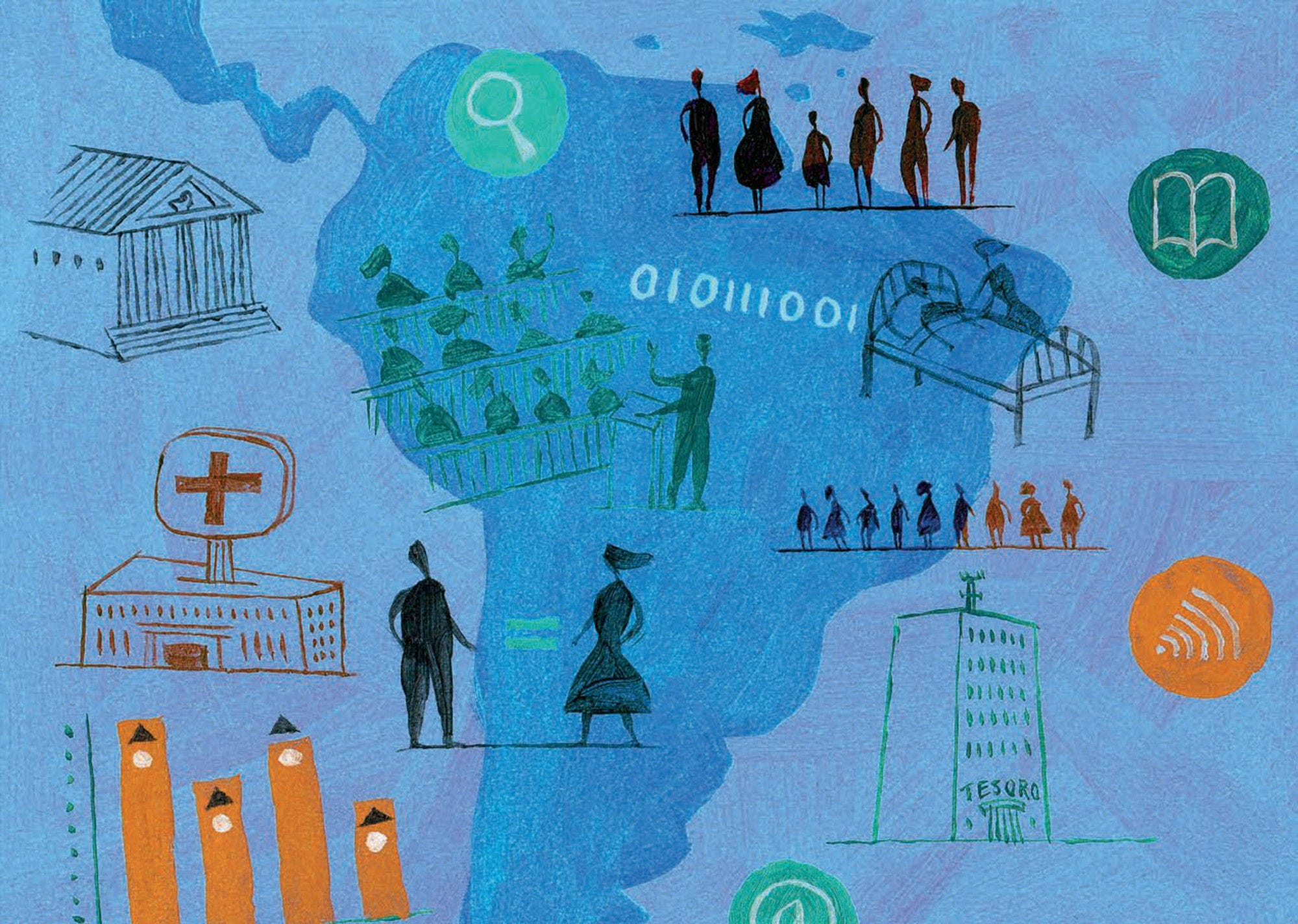Trust is defined as a person’s belief that another person or institution will act consistently with their expectations of positive behaviour (OECD, 2017a). Trust is one of the most important foundations upon which the legitimacy and sustainability of a political system is built and is key for ensuring compliance with regulations and the tax system. Trust in government is essential for social cohesion and well-being as it affects government’s ability to implement reforms. Consequently, it is necessary for the fair and effective functioning of public institutions. There is consensus in the academic literature that trust influences the relationship between people and their government and has an impact on the outcomes of public policy (OECD, 2017b).
The most comprehensive source for internationally comparable trust data currently available is the Gallup World Poll covering LAC as well as OECD countries. On average trust levels in LAC reached 33.9% in 2018, 4.4 p.p. lower than in 2007, and below the OECD average of 45%. LAC countries where trust in government is the highest are Costa Rica (48%), Guatemala (46%) and Paraguay (46%). In the other end of the spectrum, trust is lowest in Argentina (26%), Venezuela (24%) and Brazil (17%). Between 2007 and 2018 trust increased the most in Paraguay (29 p.p.), Ecuador (28 p.p.) and Jamaica (17 p.p.) while the largest reductions occurred in Venezuela (39 p.p.), Uruguay (25 p.p.) and Colombia (24 p.p.).
Trust also varies along generational groups. Only 33.1% of those aged 15-29 reported trusting the government compared to 40.1% of those aged 50 or more, an average difference that is statistically significant. While there are statistically significant differences for some countries among these age cohorts, on average, differences are not statistically significant for OECD countries. In 2018, the largest differences in trust levels between the older and the younger cohorts in LAC were observed in Chile (23 p.p.), Venezuela (21 p.p.), Costa Rica (14 p.p.), and Colombia (14 p.p.). Young people in LAC countries tend to have higher education levels than their parents and more access to new technologies and information, all factors which contribute to shaping higher expectations and may increase demands from governments.
Measures of trust in government send signal about the current relationship of people with their institutions. They could also be read as an assessment of how governments are working and how public affairs are being conducted and could be also potential predictors of social upheaval. However, trust is influenced by a wide array of factors including approval of leadership. Furthermore, according to the academic literature, other factors such as, public sector integrity, the level of government openness, the quality of services and perceived fairness could also play a role in declared trust levels (OECD 2017b). Better understanding the drivers of trust requires disentangling its multidimensionality. Consequently, refined measurement of trust in government and public institutions as well as its drivers is needed to enable governments to propose and adjust actions for regaining trust from citizens.



